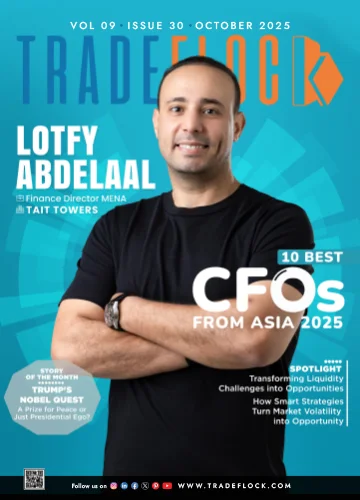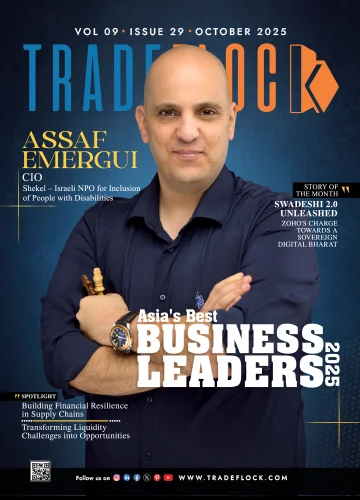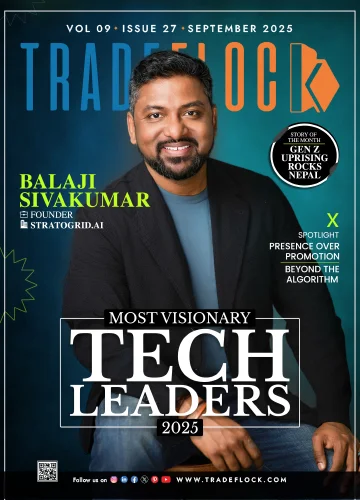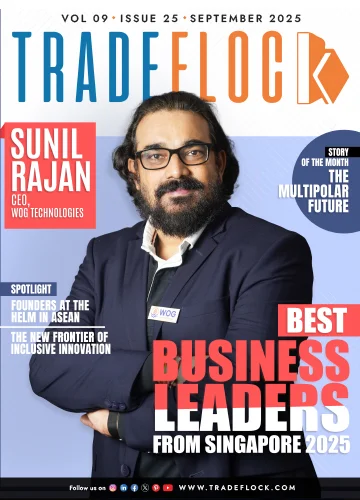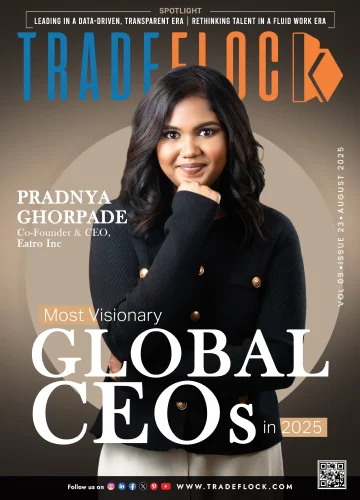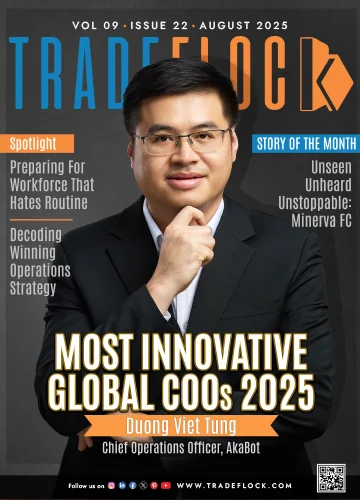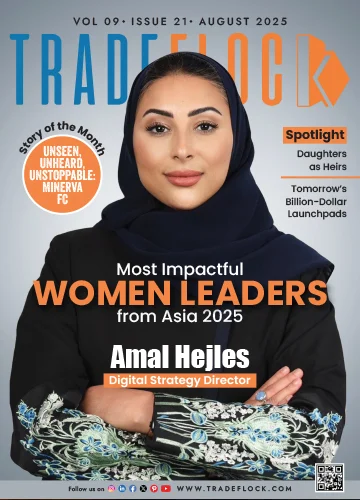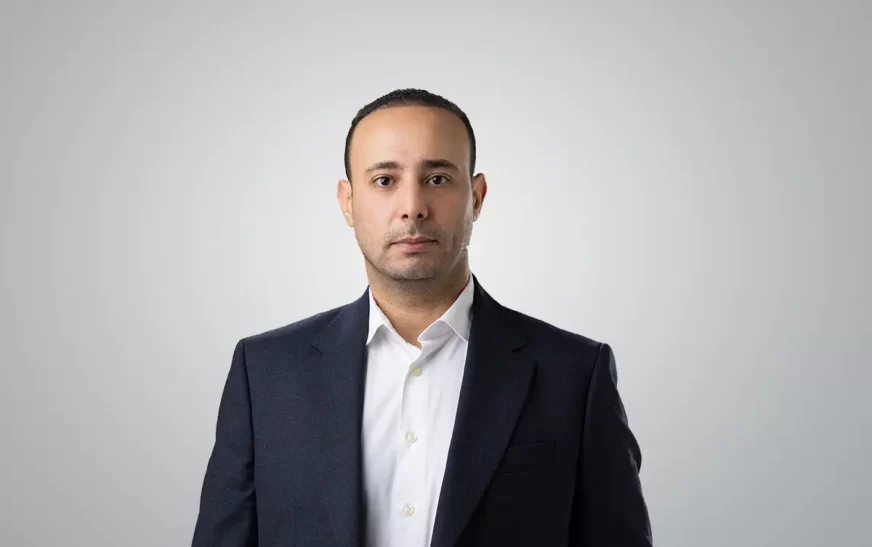
Turning Talent into a Global Competitive Advantage
Radha Krishna
Global HR Director
Advanta Seeds


Turning Talent into a Global Competitive Advantage
Radha Krishna
Global HR Director
Advanta Seeds
Radha Krishna - Best HR Leaders from Asia 2025
At the intersection of talent, strategy, and culture, GV Radha Krishna (RK) has built a career turning human capital into a decisive competitive advantage for global enterprises. As Global HR Director at Advanta Seeds, he brings expertise across talent management, total rewards, employee engagement, organisational development, transition and change management, mergers & acquisitions, and strategic workforce planning, with impact across sectors including oil & gas, hospitality, chemicals, agri-inputs, farm machinery, automation, and retail. RK’s leadership was shaped in the agri-input industry, where Advanta’s customer-centric approach allowed him to nurture talent with purpose. Leading operations in 32 countries, he has unified diverse teams while respecting local cultures and communication styles. Initiatives like cross-cultural training, inclusive leadership, and celebrating regional diversity have fostered a cohesive, high-performing workforce. A champion of innovation, RK launched a skill-based digital learning platform and leveraged data-driven insights in rewards and workforce planning, positioning HR as a strategic enabler focused on cultural intelligence, inclusion, and global organisational excellence. Speaking with TradeFlock, he revisits his journey and work that makes him proud.
What experience most transformed your HR leadership?
Nurturing talent in the agri-input industry was most transformative. At Advanta Seeds, our customer-centric approach enables aspiring agricultural professionals to engage with purpose, fostering meaningful growth while aligning individual development with organisational impact.
What strategies helped you unify a global workforce across 32 countries?
Leading a global workforce across 32 countries comes with unique challenges. Each country brings its values, communication styles, traditions, and workplace expectations. While this diversity enriches the organisation, it can also cause misunderstandings, misaligned goals, and difficulties in fostering a shared sense of belonging. Language barriers, differing work practices shaped by local customs, and varying attitudes toward hierarchy, risk-taking, and feedback complicate collaboration and decision-making. Creating unity is particularly challenging when employees identify more with local teams than the organisation as a whole. To address this, we implemented a multifaceted strategy rooted in respect, inclusion, and shared vision. We defined core values that transcend borders, forming the backbone of wour culture across hiring, performance management, and daily operations. Local teams are empowered to express these values authentically. Cross-cultural training and communication initiatives develop cultural intelligence, empathy, and collaboration, supported by global meetings, knowledgesharing platforms, and multilingual tools. Diverse leadership structures ensure multiple perspectives shape decision-making, and celebrating cultural events reinforces pride in individuality while strengthening shared identity. These efforts have fostered a cohesive, highperforming culture that honours each region’s unique contributions. The journey is ongoing, and we remain committed to listening, learning, and evolving as our global family grows.
What advice would you give young HR professionals joining global organisations?
The most critical advice for young HR professionals entering global organisations is that developing and nurturing cultural intelligence is paramount. HR leaders today shape culture, support diverse teams, and drive business impact across borders. Cultural intelligence, the ability to understand, respect, and adapt to different norms, enables inclusive environments, sensitive conflict resolution, and globally relevant policies. Practical steps include listening actively, learning regional customs and labour laws, building diverse networks, embracing flexible approaches, and championing inclusion to ensure equity and belonging. By prioritising cultural intelligence, HR professionals become trusted partners, fostering engagement, innovation, and sustainable growth. Success in global HR relies not just on policies or processes, but on people, perspective, and adaptability worldwide.
Which innovative HR initiative at Advanta Seeds are you most proud of, and why?
One HR initiative I’m particularly proud of at Advanta Seeds is our skill-based digital learning platform, which recommends personalised training based on individual career paths and skill assessments. This initiative has empowered employees globally to grow purposefully, contributing to a culture that consistently surpasses expectations in our annual WTW global culture survey, outperforming industry benchmarks. Complemented by technology platforms like Microsoft Yammer (Viva Engage), we enable seamless internal communication across the organisation, fostering engagement, collaboration, and a truly connected workforce worldwide.
What key lessons from rewards and workforce planning make HR a business enabler?
To make HR a strategic enabler, we leverage insights from total rewards and workforce planning to align talent strategies with business objectives. Analytics benchmark compensation and benefits against industry standards, identify gaps, forecast costs, and ensure equitable pay practices that support diversity and inclusion. Linking total rewards to performance and organisational outcomes, through pay-for-performance models and transparent recognition systems, fosters accountability, excellence, and engagement. Effective workforce planning begins with understanding business strategy and aligning talent acquisition, development, and deployment with long-term objectives. Scenario planning prepares for market shifts, technology changes, and regulatory challenges, while regular skill assessments guide targeted learning programmes. Proactive succession planning secures leadership continuity and builds a robust talent pipeline. By combining data-driven insights, agile planning, and strategic rewards, HR attracts, motivates, and retains talent, delivering sustained value and positioning itself as a true strategic enabler.

